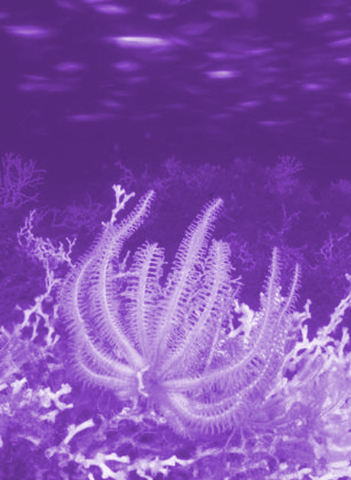Tolerant coral bred in lab
 Experts say selective breeding can produce heat-tolerant corals.
Experts say selective breeding can produce heat-tolerant corals.
Coral populations have genetic potential to adapt to warming oceans, according to new research.
“Our previous work revealed that corals in an extreme environment have an exceptionally high heat tolerance, in part due to genetic adaptation of the coral animal,” says Dr Emily Howells from Southern Cross University.
“In this study we wanted to test whether we could transfer these beneficial genetic variants to a comparatively heat sensitive coral population living in milder oceanic conditions.”
The research team cross-bred corals from the thermally extreme Persian Gulf with those of the same species from the milder Indian Ocean and measured the performance of many families of their offspring.
The team found that heat tolerance increased by up to 84 per cent when Indian Ocean mothers were bred with Persian Gulf fathers and was, on average, equivalent to the heat tolerance of offspring with both parents from the Persian Gulf.
“This was an impressive result, because while we were expecting to see some enhancement of heat tolerance, the signal was much stronger than we anticipated from the genetic contribution of the fathers alone as maternal effects also contribute to offspring tolerance,” Dr Howells said.
Genome-wide sequencing of the coral families confirmed these findings by revealing that genetic variants positively associated with heat survival were predominantly inherited from Persian Gulf parents.
The researchers also deployed the offspring to the Indian Ocean site and found that cross-bred corals with Persian Gulf fathers survive equally as well as native Indian Ocean purebred corals, but both had higher survival than non-native Persian Gulf purebred corals.
These results demonstrate that corals can be selectively bred for enhanced heat tolerance using corals from populations in extreme or warmer environments which have a higher proportion of heat-tolerant genetic variants due to local adaptation.
“Selective breeding has potential to be used to enhance the resilience of targeted coral populations to climate warming, but requires further testing before it can be implemented in intervention and restoration programs,” said Dr Howells.
“However, the most important actions to enhance the resilience of all coral populations are those that limit the magnitude of climate change.”
An unexpected finding of the study was that genetic variation was not restricted to the Persian Gulf and was also present at low levels in the cooler Indian Ocean populations.“One of the most exciting results of the study was that a small number of Indian Ocean fathers produced offspring with surprisingly high heat tolerance, and these fathers had some of the same genetic variants associated with heat tolerance that were prevalent in the Persian Gulf,” said Dr Howells.
“Such standing genetic variation is essential for natural selection to occur in warming environments.”








 Print
Print